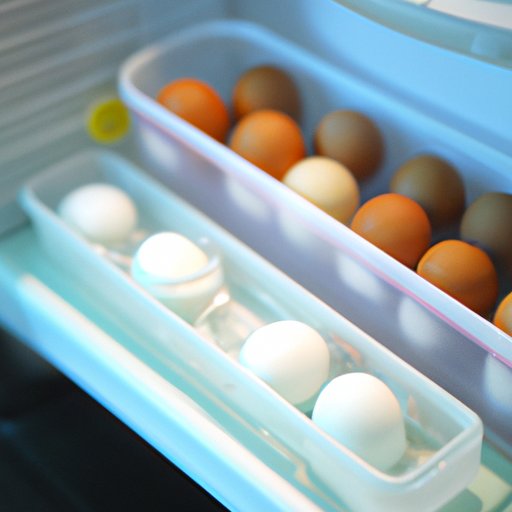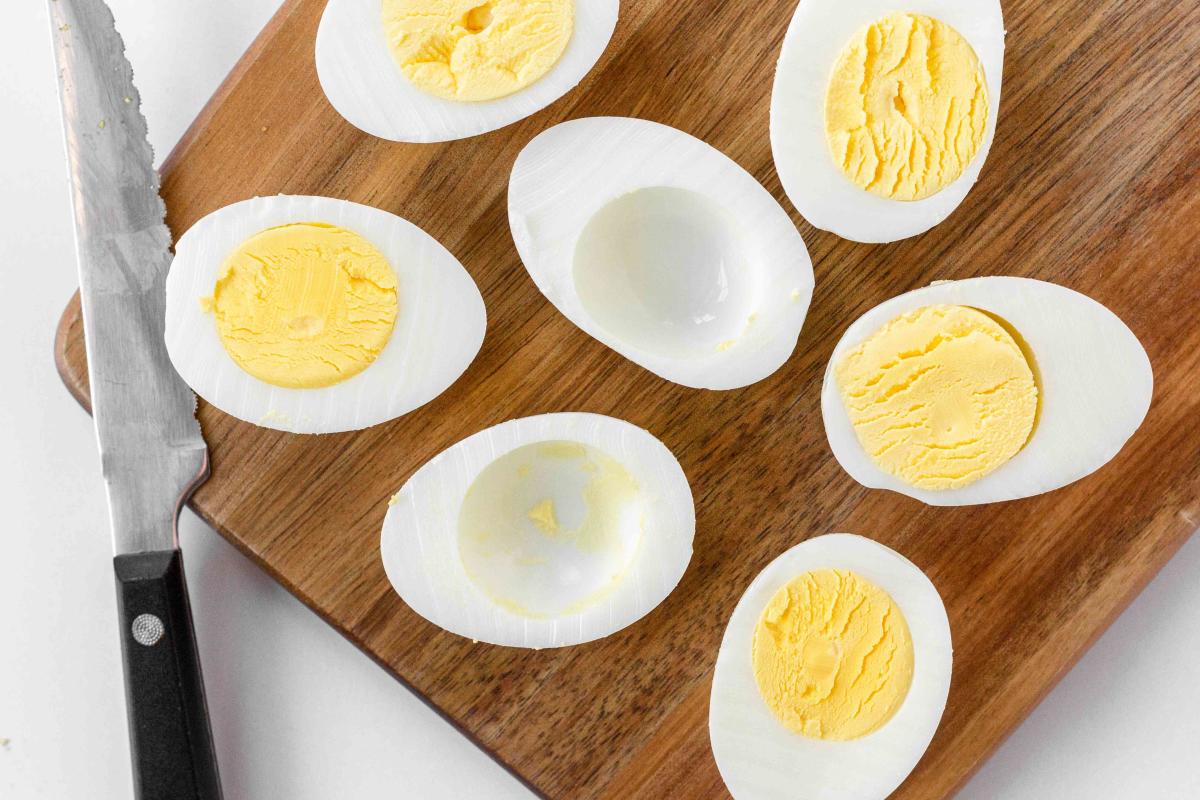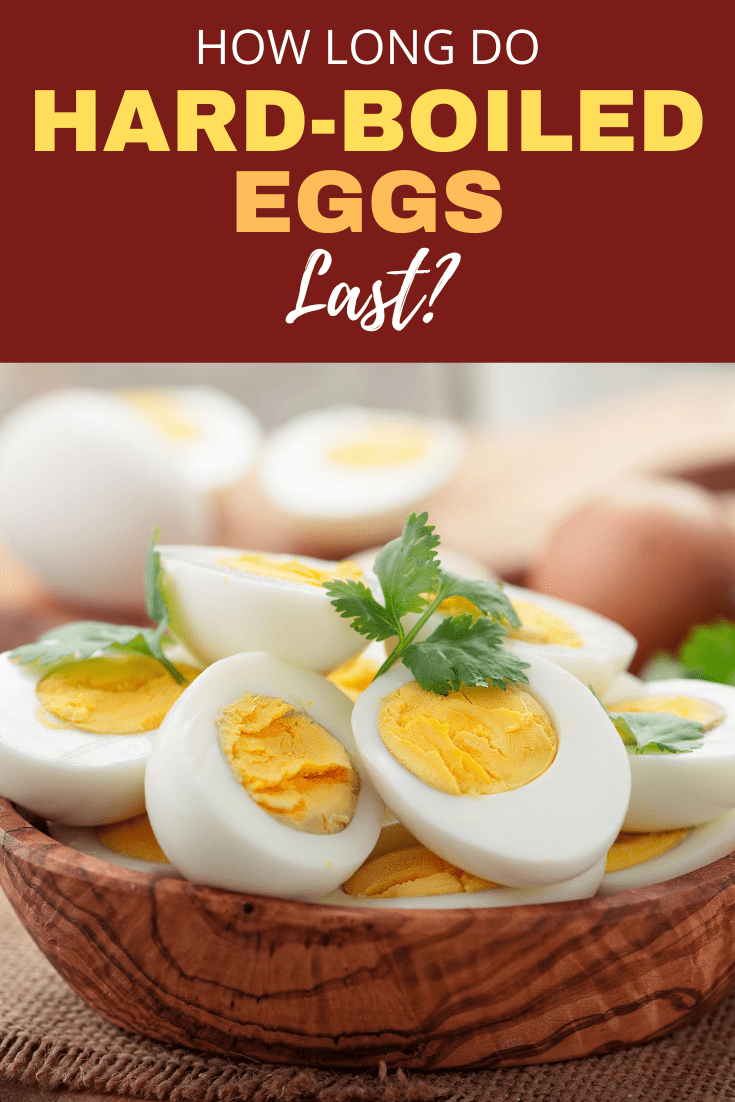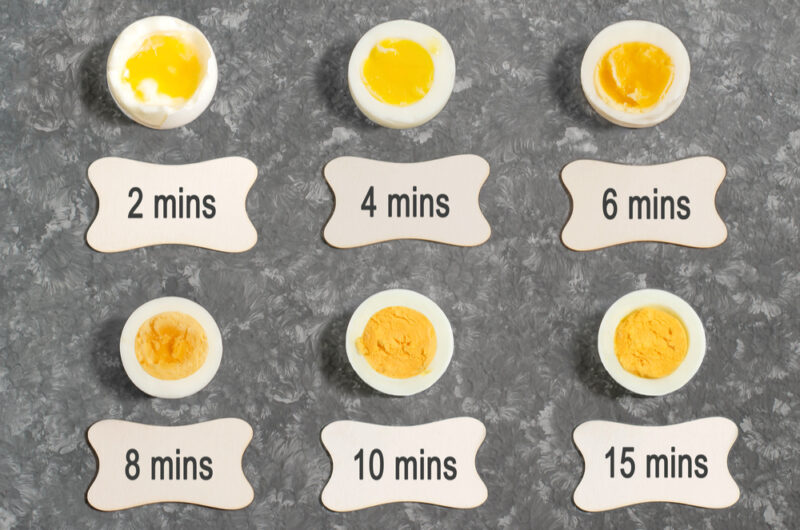Hard boiled eggs are a versatile, nutritious, and convenient food option for many households. However, understanding their shelf life and proper storage techniques is essential to ensure they remain safe to eat and retain their quality. If you're wondering how long hard boiled eggs last in the refrigerator, this article will provide you with all the information you need.
Many people rely on hard boiled eggs as a quick snack or meal prep staple. But without proper storage, these eggs can spoil quickly, leading to foodborne illnesses. Knowing how long they stay fresh and the best methods to store them is crucial for your health and convenience.
This guide will delve into the shelf life of hard boiled eggs, proper storage techniques, signs of spoilage, and other helpful tips. Whether you're a busy professional or a health-conscious individual, this article will equip you with the knowledge to maximize the lifespan of your hard boiled eggs while maintaining their quality and safety.
Read also:The Monkeys Band Members Unveiling The Talent Behind The Iconic Sound
Table of Contents
- How Long Do Hard Boiled Eggs Last in the Refrigerator?
- Proper Storage Techniques for Hard Boiled Eggs
- Signs of Spoilage in Hard Boiled Eggs
- Nutritional Value of Hard Boiled Eggs
- Health Benefits of Eating Hard Boiled Eggs
- Delicious Recipes with Hard Boiled Eggs
- Hard Boiled Eggs vs. Raw Eggs: Shelf Life Comparison
- Can You Freeze Hard Boiled Eggs?
- Frequently Asked Questions About Hard Boiled Eggs
- Conclusion: Keep Your Hard Boiled Eggs Fresh Longer
How Long Do Hard Boiled Eggs Last in the Refrigerator?
When stored properly, hard boiled eggs can last up to one week in the refrigerator. The United States Department of Agriculture (USDA) recommends consuming them within this timeframe to ensure safety and quality. However, the exact shelf life may vary depending on factors such as the initial freshness of the eggs, cooking method, and storage conditions.
It's important to note that the quality of hard boiled eggs may decline after a few days, even if they are still safe to eat. Over time, the whites may become rubbery, and the yolks may dry out. To maintain the best texture and flavor, it's best to consume them within the first three to four days.
Factors Affecting Shelf Life
Several factors can influence how long hard boiled eggs last in the refrigerator:
- Initial freshness: Freshly laid eggs tend to have a longer shelf life than older ones.
- Cooking method: Overcooking can cause the eggs to deteriorate faster due to changes in texture.
- Storage conditions: Properly sealed containers and consistent refrigerator temperatures help preserve their quality.
Proper Storage Techniques for Hard Boiled Eggs
Storing hard boiled eggs correctly is key to maximizing their shelf life. Follow these tips to keep them fresh and safe to eat:
1. Keep Them in the Shell
Leaving the eggs in their shells helps retain moisture and prevents odors from other foods in the refrigerator from affecting their taste. This also reduces the risk of contamination.
2. Use Airtight Containers
Place the hard boiled eggs in an airtight container or plastic bag to maintain freshness and prevent them from absorbing unwanted odors.
Read also:Celine Dion Did She Pass Away Exploring The Truth Behind The Rumors
3. Store on the Middle Shelf
The middle shelf of your refrigerator is usually the coldest and most consistent in temperature. Avoid storing them in the door, as frequent temperature fluctuations can reduce their lifespan.
Signs of Spoilage in Hard Boiled Eggs
Even with proper storage, hard boiled eggs can spoil over time. Here are some signs to watch out for:
- Smell: A sulfurous or unpleasant odor is a clear indication that the eggs have gone bad.
- Appearance: Look for any discoloration, mold, or cracks on the shell.
- Texture: If the whites are slimy or the yolks have an unusual texture, it's best to discard them.
Nutritional Value of Hard Boiled Eggs
Hard boiled eggs are not only delicious but also highly nutritious. A single large hard boiled egg contains approximately:
- 68 calories
- 6 grams of protein
- 5 grams of fat
- Vitamins A, D, and B12
- Minerals like iron and zinc
They are also rich in essential nutrients like choline, which supports brain health.
Health Benefits of Eating Hard Boiled Eggs
Incorporating hard boiled eggs into your diet offers numerous health benefits:
- Rich in protein: They provide high-quality protein that supports muscle growth and repair.
- Boosts brain function: The choline in eggs enhances cognitive function and memory.
- Supports eye health: Lutein and zeaxanthin in eggs protect the eyes from age-related macular degeneration.
Delicious Recipes with Hard Boiled Eggs
Hard boiled eggs can be used in a variety of dishes. Here are some ideas to inspire your cooking:
- Egg Salad: Mash the eggs with mayonnaise, mustard, and spices for a creamy spread.
- Deviled Eggs: Fill the egg halves with a mixture of yolks, mayonnaise, and seasonings.
- Salads: Add sliced hard boiled eggs to your favorite salad for extra protein and flavor.
Hard Boiled Eggs vs. Raw Eggs: Shelf Life Comparison
Raw eggs have a longer shelf life than hard boiled eggs due to their protective shell and lack of exposure to moisture. While raw eggs can last up to three to five weeks in the refrigerator, hard boiled eggs should be consumed within one week. This difference is primarily due to the cooking process, which alters the egg's structure and makes it more susceptible to spoilage.
Can You Freeze Hard Boiled Eggs?
Freezing hard boiled eggs is not recommended, as the texture and quality of the whites and yolks can deteriorate significantly. However, if you must freeze them, it's best to remove the yolks and whites separately and freeze them in airtight containers. Thaw them in the refrigerator before use, but note that the texture may not be as desirable.
Frequently Asked Questions About Hard Boiled Eggs
1. Can I eat hard boiled eggs after one week?
While hard boiled eggs can technically last up to one week in the refrigerator, their quality may decline after four to five days. It's best to consume them within this timeframe for optimal taste and texture.
2. How do I know if hard boiled eggs are still good?
Check for any unusual smells, discoloration, or changes in texture. If the eggs pass these tests, they are likely still safe to eat.
3. Can I store hard boiled eggs at room temperature?
No, hard boiled eggs should not be left at room temperature for more than two hours, as this increases the risk of bacterial growth and spoilage.
Conclusion: Keep Your Hard Boiled Eggs Fresh Longer
In summary, hard boiled eggs can last up to one week in the refrigerator when stored properly. By following the tips outlined in this article, you can ensure they remain fresh, safe, and delicious for longer. Remember to consume them within the recommended timeframe and always check for signs of spoilage before eating.
We encourage you to share your thoughts and experiences in the comments section below. If you found this article helpful, consider sharing it with your friends and family. For more informative content, explore our other articles on food safety and nutrition.
Data Source: USDA



